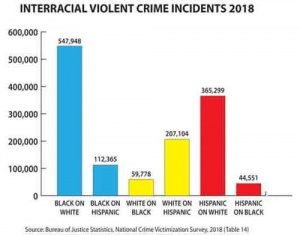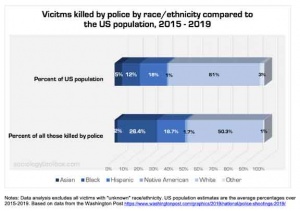Statistics
Statistics
Statistics is the discipline that concerns the collection, organization, analysis, interpretation and presentation of data. In applying statistics to a scientific, industrial, or social problem, it is conventional to begin with a statistical population or a statistical model to be studied.
The concept of correlation has the potential for confusion.
An example: A study of annual income that also looks at age of death might find that poor people tend to have shorter lives than affluent people. The two variables are said to be correlated; however, they may or may not be the cause of one another.
The correlation phenomena could be caused by a third, previously unconsidered phenomenon, called a "lurking variable" or "confounding variable". For this reason, there is no way to immediately infer the existence of a causal relationship between the two variables.
In statistics, the phrase "correlation does not imply causation" expresses the inability to legitimately deduce a cause-and-effect solely on the basis of an observed association or correlation.
The idea that "correlation implies causation" is an example of a questionable-cause logical fallacy.
Counting Crimes and Incarcerations
There are politicians, protesters and pundits who gather and share statistics correlating the numbers with the cause of what is conveniently identified as a problem in society.
But correlation alone is not proof of the cause. In statistics, the phrase "correlation does not imply causation" is a reference to the inability to legitimately deduce a cause-and-effect relationship between variables solely on the basis of an observable association or correlation between them. The idea that "correlation implies causation" is a questionable-cause logical fallacy, in which two events occurring together are taken to have established a cause-and-effect relationship when in fact they have not.
Without understanding all of the factors effecting the processes of the individual events and their effects upon the crowd psychology of society as a group evidence of the actual causality may be illusive. Causality is influence by which one event, process or state contributes to the production of another event, process or state where the cause is partly responsible for the resulting effect, and the effect is partly dependent upon the cause. In general, a process may have many causes, which are also said to be causal factors.
Where is the real threat to communities and their members?
Is it the judicial and police policies or other factors driving statistics?
Can community or collective cultural practices cultivate the apathy, sloth, avarice, and greed of the people themselves?
What really is taking the liberty and the lives in society?
Is racism rampant?
Is it even a significant factor in causing the difficulties and inequalities in society as some people suggest the statistics prove?
Why are people rioting? If they are wrong about their conclusions concerning the real meaning of statistics presented and repeated in the media, what is the truth?
What has caused liberty to diminish and society to decay in nation after nation from the dawn of man?
The Race in America, a Holy Post video by Phil Vischer correlates what appears to be an impressive list of statistics which he seems to claims prove the cause of the plight of American Black community is racism.
Are there statistical disparity in his statistical conclusions and is there a "lurking variable" he has not perceived?
Have communities been accepting ideas that have been creeping in to their thinking through schemes or practices that have been steadily altering the course and culture of society?
"I have begun everything with the idea that I could succeed, and I never had much patience with the multitudes of people who are always ready to explain why one cannot succeed. – Booker T Washington
While Phil's video is polished the facts can be misleading because it is missing a basic understanding of the key factors in the individual and social development of communities as the root causes of why they break down. His presentation is not alone in its misconception of the cause and effect for societal decay.
"A whining crying race may be pitied but seldom respected." – Booker T Washington
Many of the statistics presented by pundits who point to racism as the problem are used by their opponents to prove another cause for the effects we see.

There are those that like quoting that "In 2018, black people were three times more likely to be killed by police than were whites." That sounds terrible but is it because of racism?
What they fail to mention is that Blacks commit more than 5 times the crimes as Whites including almost 50 percent of the murders even though they only account for 12% of the population.
In 2016 there were 6676 murders in the USA, 3176 were committed by blacks and 3196 by whites. Blacks are only 12% but commit almost 50% of the murders. How is that possible?
And white account for the other half of the murders but are more than half at 61% of the population. In 2016 there were 777 interracial homicides. 553 were committed by Blacks. Why are blacks committing more homicides?
Statistics also show that about 68 to 85% of all interracial homicides are committed by Blacks even though they are only 12% of the population. Historically speaking black people are not more violent than white people so the present statistics of who is most violent has nothing to do with race.
So what is causing this extreme inequality in murder and violent crimes rates if it is not racial?
And what about police killings?
The FBI counted 435 “justifiable homicides” by police officers in 2016, and in 429 of the cases, the person had a firearm when killed.
Police have over 60,000,000 encounters every year with the public. They only arrest 10,000,000 annually, a number that has steadily gone down since 2006. Even though their job includes finding, capturing, and arresting some of the most violent murders, gangsters, thieves, and robbers in the nation they are able to do that with very few actual deaths. Police killed 1,165 people in 2018. Seeing that the police are called to get to the most dangerous part of town and confront the most desperate criminals in your community as quickly as possible it would seem that more people would likely die in a nation of 320,000,000 people.

On the other hand 250,000 people in the US are killed every year because of medical mistakes, making it the third-leading cause of death after heart disease and cancer.[1]
Even though there are about 883.7 million visits to Physicians[2] only 36,353,946 people are admitted to all U.S. Hospitals.[3]
Doctors are human, like policeman they make mistakes, "Roughly 12,000,000 Americans are misdiagnosed each year."[4]
While Doctors do have to deal with complex issues they are not endanger of being shot, stabbed or over powered by their patience when they are making their diagnosis. They have to make choices but do not have to chase their patience in dark streets or wrestle their patience to the ground, subdue them, and take them into custody while in life threatening situations. Still thousands die because of mistakes doctors make all the time.
In 2017, police killed 19 unarmed black males, down from 36 in 2015, according to The Washington Post. There were 66 police officers in 2016 were “feloniously” killed but 135 died in the line of duty.
How many lives do police officers save every year by direct action? How many do they save by their mere presence as a deterrent?
"A recent “deadly force” study by Washington State University researcher Lois James found that police officers were less likely to shoot unarmed black suspects than unarmed white or Hispanic ones in simulated threat scenarios. Harvard economics professor Roland Fryer analyzed more than 1,000 officer-involved shootings across the country. He concluded that there is zero evidence of racial bias in police shootings. In Houston, he found that blacks were 24 percent less likely than whites to be shot by officers even though the suspects were armed or violent." [https://www.facebook.com/127225910653607/posts/3236873216355512/ Are the Police Racist? by Heather Mac Donald
If people look deeper into some of the same Race Statistics in America used by Phil Vischer and many others what conclusions do they draw as to the causality of problems seen in the Black community?
Do they see the police and racism as a source of the problem?
Have the policies of politicians undermined the culture and even the morality of society? Are they doing it now? Has "Legal charity" and the welfare state begun by men like FDR been the "lurking variable" that has been confounding society again as seen over and over throughout history?
The real cause of riots and social unrest is the degeneration of society through the heart and mind of the people by the acceptance of covetous practices which is often funded and fueled in the spreading of gifts, gratuities, and benefits by the power of government and at the expense of their neighbor.
Age of Reason |
Reason |
Right Reason |
Critical theory |
Logic |
Mind |
Critical thinking |
Crowd psychology |
Hue and cry |
Social structure |
Social bonds |
Abortion |
Race |
Riots |
Supremacy |
Statues |
Addiction |
Coronavirus |
Shutdown |
Welfare types |
Legal charity |
Oppress |
- ↑ "The study, which was done by researchers at Johns Hopkins University in Baltimore, made news in the Milwaukee Journal Sentinel and in news outlets across the nation. Its major finding: An estimated 251,454 deaths per year, or 9.5 percent of all deaths in the United States, stem from a medical error."
- ↑ https://www.cdc.gov/nchs/fastats/physician-visits.htm
- ↑ https://www.aha.org/statistics/fast-facts-us-hospitals
- ↑ Besides medical errors 80 percent of medical bills contain at least one error which together costs Americans $210,000,000,000 annually. https://mymedicalscore.com/medical-error-statistics/